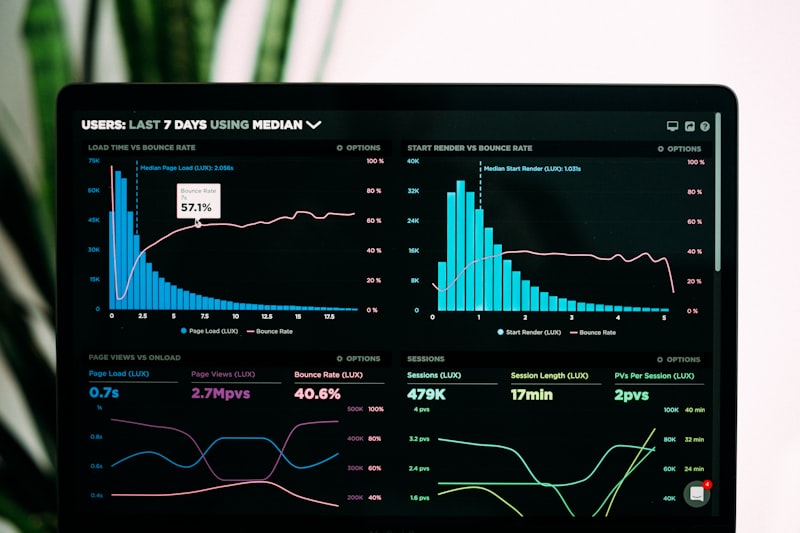Why Off-Page SEO is Crucial for Digital Success
The Complete Guide to Building Authority and Rankings
The Power of Off-Page SEO
Off-page SEO refers to all the actions taken outside of your own website to improve its search engine rankings. While on-page SEO focuses on optimizing your content and technical setup, off-page SEO builds your site's authority and reputation through backlinks, social signals, and brand mentions.
In today's competitive digital landscape, off-page SEO isn't just important—it's essential. Google's algorithms increasingly prioritize websites that demonstrate real-world credibility through external validation. Without strong off-page signals, even the best-optimized website will struggle to rank against established competitors.

"Websites with strong off-page SEO signals rank 3.5 times higher than those focusing only on on-page optimization, according to Ahrefs research. Off-page factors account for approximately 60% of Google's ranking algorithm."
The Evolution of Off-Page SEO
Early Search Algorithms (1990s)
The concept of off-page SEO began with Google's PageRank algorithm in 1996, which treated links as "votes" for a website's importance. Early SEO practitioners quickly realized that acquiring more backlinks—regardless of quality—could boost rankings.
This led to:
- Link farms and spammy directory submissions
- Comment spam on blogs and forums
- Article spinning and low-quality content marketing
- Paid link schemes and manipulative tactics
Modern Off-Page SEO (2010s-Present)
Google's algorithm updates (Panda, Penguin, Hummingbird) transformed off-page SEO into a quality-focused discipline:
- 2012 Penguin Update: Penalized spammy link building
- 2013 Hummingbird: Prioritized semantic search and context
- 2014 Pigeon: Integrated local signals more deeply
- 2015 RankBrain: Introduced AI to evaluate quality signals
- 2022 Helpful Content Update: Rewarded genuine expertise
Today, off-page SEO focuses on earning genuine authority through high-quality backlinks, brand mentions, and social proof.
Key Off-Page SEO Factors
Quality Backlinks
Backlinks remain the most powerful off-page ranking factor:
- Authority: Links from .edu/.gov sites carry more weight
- Relevance: Industry-specific links are more valuable
- Anchor Text: Natural variation works best
- Diversity: Mix of dofollow/nofollow links
- Growth Rate: Steady, natural acquisition
A single backlink from the New York Times can be more valuable than 1,000 links from low-quality directories.
Social Signals
While not direct ranking factors, social signals influence SEO:
- Shares: Content shared more gets more visibility
- Engagement: Comments and likes indicate quality
- Brand Mentions: Unlinked mentions still help
- Influencer Impact: Industry leaders sharing your content
- Social Proof: Builds trust and click-through rates
Content with strong social engagement earns 22% more backlinks than content without social sharing.
Local SEO Signals
For local businesses, off-page factors are critical:
- Google My Business: Optimized profiles rank better
- Local Citations: Consistent NAP (Name, Address, Phone)
- Reviews: Quality and quantity impact rankings
- Local Backlinks: From community sites and newspapers
- Local Directories: Industry-specific listings
Businesses with complete GMB profiles receive 7x more clicks than those with incomplete information.
Key Benefits of Off-Page SEO
Improved Search Visibility
Off-page SEO directly impacts how search engines perceive your website's authority and relevance:
- Higher rankings for competitive keywords
- Increased organic click-through rates
- Better performance in featured snippets
- More visibility in knowledge graphs
- Stronger presence in local pack results
Enhanced Brand Authority
Strong off-page signals build trust with both search engines and users:
- Establishes your brand as an industry leader
- Increases direct traffic and brand searches
- Improves conversion rates
- Creates referral traffic opportunities
- Builds relationships with influencers
Effective Off-Page SEO Strategies
Content Marketing
Create link-worthy content that naturally attracts backlinks:
- Original research and data studies
- Comprehensive guides and tutorials
- Interactive tools and calculators
- Expert roundups and interviews
- Visual content (infographics, videos)

Link Building
Earn high-quality backlinks through ethical methods:
- Guest posting on authoritative sites
- Broken link building
- Resource page outreach
- Digital PR and journalist outreach
- Testimonials for vendors/suppliers

Social Media Engagement
Leverage social platforms to amplify your content:
- Share content consistently across platforms
- Engage with industry influencers
- Participate in relevant discussions
- Create platform-specific content
- Use hashtags strategically
Local SEO Tactics
For local businesses, focus on:
- Claiming and optimizing Google My Business
- Building local citations
- Encouraging customer reviews
- Sponsoring local events
- Getting featured in local media
The Essential Role of Off-Page SEO
Off-page SEO remains the most powerful way to establish your website's authority and improve search rankings. While on-page optimization ensures your content is technically sound, off-page strategies demonstrate to search engines that your content is valuable, trustworthy, and relevant to users.
The most successful SEO campaigns combine both on-page and off-page tactics, creating a virtuous cycle where great content attracts quality backlinks, which in turn drives more traffic and opportunities for additional links.
As search algorithms continue to evolve, focusing on genuine relationship-building, high-quality content creation, and ethical link earning will future-proof your SEO strategy against algorithm updates and increasing competition.
"Websites that invest in comprehensive off-page SEO strategies see an average 45% increase in organic traffic within 6-12 months. The combination of authoritative backlinks, strong social signals, and brand recognition creates a powerful synergy that search algorithms reward."





0 Comments